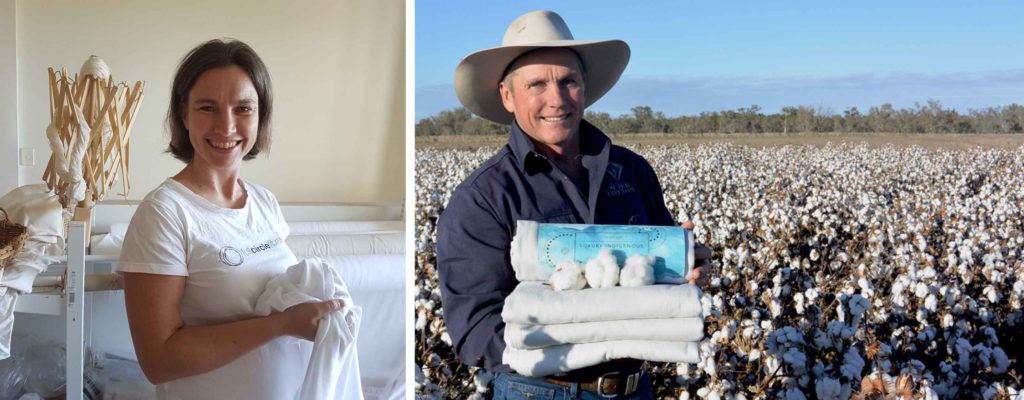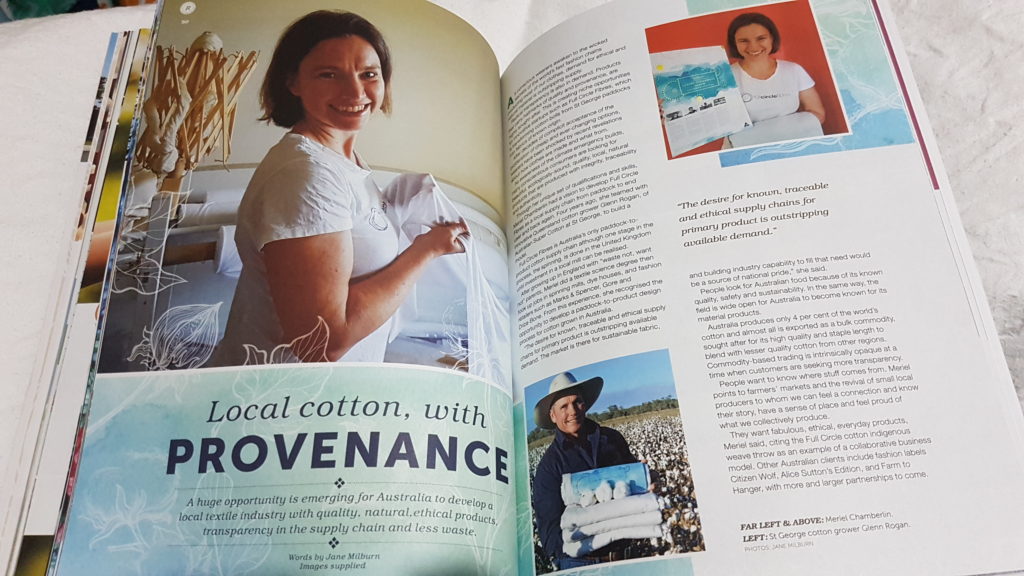A huge opportunity is emerging for Australia to develop a local textile industry with quality natural ethical products, transparency in the supply chain and less waste. Jane Milburn reports.
As conscious wearers awaken to the wicked secrets within the world’s fast fashion chains producing most of our clothes, demand for ethical and natural material is outstripping supply.
Radical transparency is also in demand. Products that carry hallmarks of quality and provenance, are highly sought-after. This is creating niche opportunities for innovative startups such as Full Circle Fibres, which is transforming cotton bolls from St George paddocks into fabrics of known origin.
After decades of complicit acceptance of the proliferation of cheap and ever-changing options, wearers have been shocked by recent revelations about how clothes are made and what from.
As awareness of the climate emergency continues to build, many conscientious consumers are looking for beautiful ecologically-sound quality local natural products that are produced with integrity, traceability and authenticity.
Through her unique set of qualifications and skills, Meriel Chamberlin had a vision to develop Full Circle Fibres as a local supply chain from paddock to end user and back again. Four years ago, she teamed with innovative Queensland cotton grower, Glenn Rogan of Australian Super Cotton at St George, to build a different model.
Full Circle Fibres is Australia’s only paddock to product cotton supply chain although one stage in the process, the spinning, is currently done in the United Kingdom until investment in a local mill can be realized.
After growing up in England with ‘waste-not want-not’ parents, Meriel did a textile science degree followed by jobs in spinning mills, dye houses, and fashion retailers such as Marks & Spencer, Gore and Driza-bone. From this experience, Meriel recognised the opportunity to develop a paddock to product design process for cotton grown in Australia.
“The desire for known, traceable and ethical supply chains for primary product is outstripping available demand. The market is there for sustainable fabric, and building industry capability to fill that need would be source of national pride,” she said.
People actively look for Australian food because of its known quality, safety and sustainability. In the same way, the field is wide open for Australia to become known for its material products, rather than just raw resources.
Australia produces only 4 per cent of the world’s cotton and currently almost all is exported as a bulk commodity, sought-after for its high quality and staple length to blend with lesser quality cotton from other regions. Commodity-based trading is intrinsically opaque at a time when customers are seeking more transparency.
People want to know where stuff comes from. Meriel points to farmers markets and the revival of small local producers to whom we can feel a connection and know their story, have a sense of place and feel proud of what we collectively produce.
They want fabulous, ethical, everyday products said Meriel, citing the Full Circle cotton Indigenous weave throw as an example of a collaborative business model. Other Australian clients include fashion labels Citizen Wolf, Alice Sutton’s Edition, and Farm to Hanger, with more and larger partnerships to come.
This story was earlier published in Ruth Magazine Spring edition and Farmonline.

